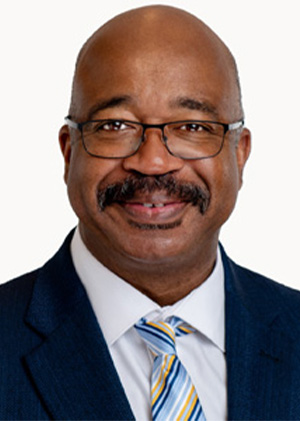Digital Debut
Meet the Board
Get to know your officers through these short interviews
INTERVIEWED BY SAHELY MUKERJI | SEPTEMBER 16, 2025
 |
|
|
Gary Richberg, RN, CASC
|
|
We are running a series of Q&As with ASCA’s Board of Directors to help our members get to know them better. Meet Gary Richberg, RN, CASC, Board vice president and ASC consultant based in Bellingham, Washington.
Q: How did you get into the ASC space?
Gary Richberg (GR): While working in the emergency room, I was asked to float over to the surgery center to start IVs—and from that moment on, I never looked back. That experience sparked a lasting passion for ambulatory surgery, and I have remained committed to the ASC community ever since. During my time at an ASC in San Diego, I was recruited to serve as a circulator for a new ASC being developed by HealthSouth Rehabilitation Hospital of Las Vegas, marking a pivotal step in my career within this dynamic and impactful sector of healthcare.
Quick Facts
Personal:
Age: 61
Place of birth: East Orange, New Jersey
Residence: Bellingham, Washington
Family: Spouse, Theresia; two children, three stepchildren and six grandchildren
Education: Bachelor of Science in Nursing, University of Texas at Arlington; Master of Science in Nursing, Western Governors University; Master of Business Administration, Western Governors University; Doctor of Nursing Practice (DNP), Aspen University
Career highlights: In 2022, I was honored to be recognized by Incredible Health as one of seven African-American nurses making a meaningful impact in the field. This unexpected but deeply cherished recognition played a pivotal role in affirming my commitment to the nursing profession. It also served as a key motivation in my decision to complete my DNP degree and to pursue my family nurse practitioner licensure.
First job: I joined the United States Navy and trained to become a hospital corpsman.
One-word description of self: Ambitious
Go-to motto or phrase: An accomplishment is always an accomplishment.
Your “superpower”: Always maintaining a positive attitude
One thing most people at work do not know about you: I have a Doberman Pinscher named “G-Money.”
Q: What are your aspirations for ASCA?
GR: ASCA continues to be a strong advocate for the ASC community, consistently emphasizing the value that ASCs provide to patients through high-quality care and cost-effective solutions. Its efforts help ensure that the role of ambulatory surgery centers remains central in shaping a more efficient, patient-centered healthcare system.
Q: Who was a great mentor for you?
GR: Brent Lambert of ASCOA and Tom Mallon of Regent Surgical Health were two influential mentors who guided me early in my career as an ASC administrator. Although they had distinctly different leadership styles, both offered invaluable insight and support. Through candid conversations about my challenges as a new administrator, they helped me navigate the complexities of ASC leadership and achieve success more efficiently without having to reinvent the wheel.
Q: What are you most proud of in your ASC work?
GR: I am committed to working with the ASC community to highlight the critical value we provide in reducing the cost of care for both patients and the broader healthcare system. By offering high-quality, efficient and patient-centered surgical care in a cost-effective setting, ASCs play a vital role in advancing healthcare affordability and accessibility.
Q: If you could change one thing about the ASC community, what would it be?
GR: We must strengthen our ability to compete with hospital systems in advocating for the causes we believe in. By unifying our efforts and amplifying our voice, the ASC community can more effectively influence policy, protect its interests and champion high-quality, affordable care for its patients.
Q: What excites you most about the future of ASCs?
GR: I am truly grateful to see the ASC community increasingly recognized for the vital role we play in delivering high-quality, cost-effective care. ASCs consistently achieve outstanding patient satisfaction, maintain lower infection rates and offer significantly reduced costs compared to hospital outpatient departments. This growing recognition underscores the critical value ASCs bring to both patients and the broader healthcare system.
Q: What legacy do you hope to leave in the ASC space?
GR: The ASC community is stronger together than we are individually. By uniting our voices, sharing best practices and supporting one another, we can drive meaningful change, elevate standards of care and amplify the impact of ASCs across the healthcare landscape.